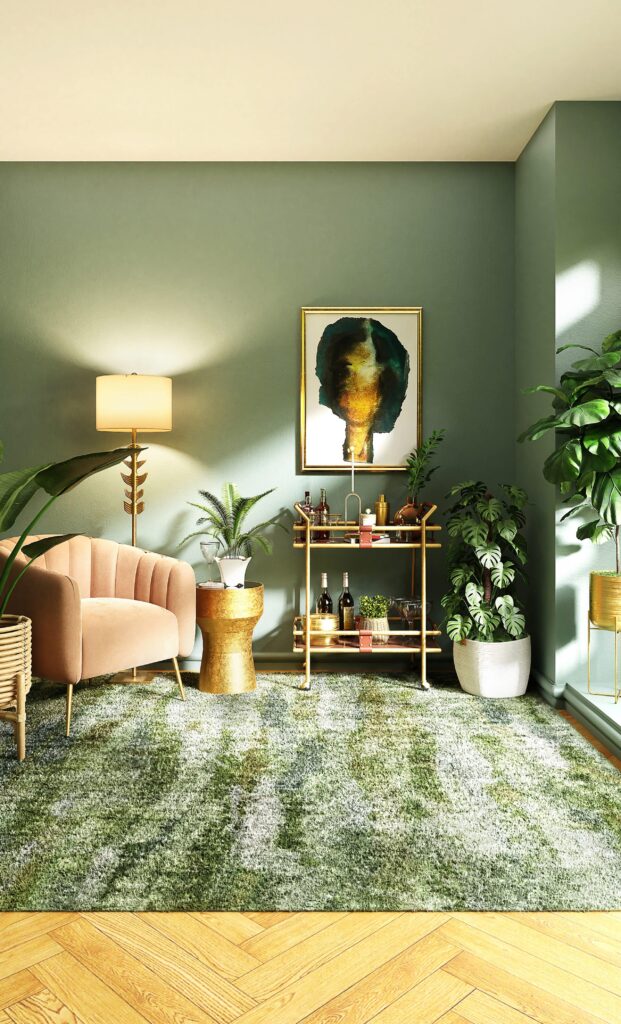Today, we will share with you an idea to start a sustainable living niche site! As the impacts of climate change continue to be felt across the world, there has never been a more important time to take action and adopt a more sustainable way of living.
However, for many people, making the shift to green living can feel overwhelming and inaccessible — especially with so much information and advice out there on how to do it “right.”
The good news is that there are bloggers and content creators out there who have made it their mission to change that narrative. From sustainable fashion and eco-friendly home and gardening tips to plant-based living and ethical consumerism, these blogs cover a wide range of topics related to green living.
By providing practical advice, product recommendations, and engaging content, they offer a helping hand to those looking to embark on their green-living journeys. These content creators play an important role in educating and empowering us to take action toward creating a more sustainable, vibrant future for all.
Understanding the Sustainable Living Niche

Defining sustainable living
Sustainable living can be defined as a lifestyle that aims to reduce an individual’s or community’s use of the Earth’s natural resources. It involves making conscious choices to minimize waste, reduce energy consumption, and support environmentally friendly practices.
This can include adopting renewable energy sources, reducing carbon footprint, and promoting ethical consumerism. Sustainable living is not just about individual actions, but also about advocating for systemic changes that prioritize the health of the planet and its inhabitants.
The growing interest in sustainable living
The growing interest in sustainable living reflects a global shift towards conscious consumerism and a heightened awareness of the environmental impact of daily choices.
People are increasingly seeking ways to minimize their carbon footprint, reduce waste, and make eco-friendly decisions in all aspects of life. This interest extends beyond mere trendiness; it signifies a collective commitment to fostering a healthier planet for future generations.
Individuals are exploring sustainable living practices in various facets of their lives, from adopting eco-friendly habits at home to supporting businesses with environmentally responsible practices.
The desire for sustainable living is evident in the surge of interest in renewable energy, zero-waste lifestyles, and ethical consumption.
Communities are coming together to share knowledge, resources, and inspiration, creating a ripple effect that encourages positive environmental stewardship.
The emphasis on sustainable living is not only an individual choice but also a reflection of a broader cultural and societal shift towards prioritizing environmental responsibility.
Governments, businesses, and educational institutions are increasingly recognizing the importance of sustainability, incorporating eco-friendly practices into policies and daily operations.
As the discourse around climate change and environmental preservation intensifies, the momentum behind sustainable living continues to grow, transforming it from a niche interest into a mainstream movement with far-reaching implications for the health of our planet.
Identifying the Target Audience

Who is interested in sustainable living?
The interest in sustainable living is widespread and diverse, encompassing individuals and communities from various backgrounds and lifestyles.
From environmentally conscious millennials to families looking to reduce their ecological footprint, the appeal of sustainable living cuts across age, gender, and socioeconomic lines. This interest is driven by a shared commitment to environmental stewardship and a desire to make a positive impact on the planet.
As awareness of environmental issues continues to grow, so does the interest in sustainable living, making it a relevant and compelling niche for a wide range of audiences. And ass the demand for sustainable living continues to grow, so does the need for accessible and engaging resources to support individuals on their green-living journeys.
Overall, the increasing interest in sustainable living is a testament to the growing awareness and commitment to environmental stewardship among individuals and communities.
This trend underscores the importance of providing valuable and informative content to support and empower those seeking to embrace a more sustainable way of life.
Choosing a Niche Topic within Sustainable Living

Researching popular niche topics
When researching popular niche topics within sustainable living, it’s essential to consider the diverse interests and needs of the target audience.
From zero-waste living to renewable energy and sustainable fashion, there are numerous subtopics to explore within the sustainable living niche.
Here are some popular niche areas within this broader theme:
- Zero-Waste Lifestyle:
- Tips, tricks, and product reviews for those aiming to reduce their waste and live a zero-waste lifestyle.
- Eco-Friendly Fashion:
- Sustainable and ethical fashion choices, including clothing brands, eco-conscious trends, and DIY fashion projects.
- Plant-Based Living:
- Recipes, meal plans, and resources for individuals adopting a plant-based or vegan lifestyle for environmental sustainability.
- Minimalism and Sustainable Design:
- Exploring minimalistic living and sustainable design principles for home and lifestyle choices.
- Green Gardening Practices:
- Sustainable gardening tips, organic gardening, and eco-friendly landscaping practices for homes and communities.
- Renewable Energy Solutions:
- Information on solar power, wind energy, and other renewable energy sources for homes and businesses.
- Upcycling and DIY Projects:
- Creative ideas for repurposing items, reducing waste, and engaging in do-it-yourself (DIY) sustainable projects.
- Sustainable Travel:
- Eco-friendly travel destinations, tips for reducing travel-related carbon footprint, and responsible tourism practices.
- Ethical Beauty and Personal Care:
- Reviews of cruelty-free and sustainably sourced beauty products, DIY beauty recipes, and ethical skincare routines.
- Community-Based Sustainability Initiatives:
- Highlighting local or community-driven sustainable living projects, events, and initiatives making a positive impact.
- Green Parenting:
- Sustainable parenting tips, eco-friendly baby products, and green practices for families.
- Circular Economy Education:
- Exploring the concept of a circular economy, emphasizing reducing, reusing, and recycling materials.
By conducting thorough research and understanding the trending topics and concerns within the sustainable living community, you can identify unique angles and valuable content ideas to engage and inform your audience.
This approach will help you create a niche site that resonates with the growing interest in sustainable living and provides valuable resources for individuals seeking to embrace a more eco-friendly lifestyle.
Finding a unique angle for your niche site

Discovering a unique angle for your niche site is crucial for standing out in a crowded online landscape. Here are some strategies to help you identify and develop a distinctive approach for your niche:
- Narrow Down Your Niche:
- Instead of covering a broad topic, narrow your focus to a specific subset within the niche. For example, if your niche is “sustainable living,” you could narrow it down to “zero-waste living in urban environments” or “sustainable living for busy professionals.”
- Address a Specific Problem or Challenge:
- Identify common problems or challenges within your niche and tailor your content to address them. This could involve providing solutions, tips, or resources that are not readily available elsewhere.
- Combine Niche Areas:
- Explore the intersection of two or more related niches. For instance, you might combine “sustainable living” with “tech innovation” to create a niche site focusing on “sustainable smart home solutions.”
- Tell Your Unique Story:
- Share your personal experiences, challenges, and successes within the niche. Your unique perspective and journey can resonate with your audience and set your site apart.
- Offer Exclusive Content or Resources:
- Provide valuable content or resources that are not widely available. This could include in-depth guides, expert interviews, or access to exclusive tools or databases related to your niche.
- Create a Distinctive Brand Persona:
- Develop a unique brand identity for your site. This includes your tone of voice, visual elements, and overall style. A memorable brand persona can make your site more appealing and recognizable.
- Focus on a Specific Demographic:
- Tailor your content to cater to a specific demographic within your niche. For instance, if your niche is “fitness,” you might narrow it down to “fitness for seniors” or “fitness for busy moms.”
- Stay Ahead of Trends:
- Keep an eye on emerging trends within your niche and position your site as a trendsetter. Providing content on cutting-edge topics can attract early adopters and trend enthusiasts.
- Emphasize Sustainability or Social Impact:
- If applicable, highlight the sustainability or social impact aspects of your niche. Demonstrate how your audience’s engagement with your site contributes to positive change.
- Encourage User Participation:
- Foster a community around your niche by encouraging user-generated content, discussions, or submissions. Creating a collaborative space can set your site apart as an interactive and engaging platform.
Creating Engaging and Informative Content
Tips for creating high-quality content
To create high-quality content for your sustainable living niche site, it’s crucial to conduct in-depth research on popular niche topics within the sustainable living community.
By understanding the diverse interests and needs of your target audience, you can identify unique angles and valuable content ideas that resonate with the growing interest in sustainable living.
Additionally, providing practical advice, product recommendations, and engaging content will help you offer valuable resources for individuals seeking to embrace a more eco-friendly lifestyle. Utilizing different content formats such as blogs, videos, and infographics can also enhance the engagement and informative value of your content.
Utilizing different content formats (blogs, videos, infographics, etc.)
In order to create engaging and informative content for your sustainable living niche site, it’s important to utilize a variety of content formats. This can include written blogs, informative videos, and visually appealing infographics.
By diversifying your content, you can cater to different learning styles and preferences, making your site more accessible and engaging for a wider audience. Additionally, different content formats can help you convey information in a more impactful and memorable way, enhancing the overall value of your site.
Utilizing different content formats (blogs, videos, infographics, etc.) can also help you establish your niche site as a comprehensive and authoritative resource within the sustainable living community. By providing valuable information in various formats, you can cater to the diverse needs and preferences of your audience, ultimately enhancing the overall user experience and engagement on your site.
Some popular sustainable living niche sites
When it comes to sustainable living niche sites, there are several popular platforms that have gained traction within the eco-friendly community.
Websites like Sustainably Chic and Sustainable Jungle offer valuable resources, practical tips, and engaging content on topics such as sustainable fashion, zero waste living, eco-friendly travel, and green beauty.
These platforms have established themselves as go-to destinations for individuals looking to reduce their environmental impact and embrace a more sustainable lifestyle.
For more ideas, you can check out 10 additional sustainable living niche site as below:
- TreeHugger (treehugger.com):
- TreeHugger provides news, information, and advice on sustainable living, covering topics such as eco-friendly products, green technology, and environmental issues.
- Zero Waste Home (zerowastehome.com):
- Zero Waste Home, run by Bea Johnson, focuses on the zero-waste lifestyle. Bea shares practical tips, lifestyle advice, and personal experiences related to reducing waste.
- The Minimalists (theminimalists.com):
- While not exclusively focused on sustainability, The Minimalists promote a minimalist lifestyle, which often aligns with sustainable living principles by emphasizing intentional and mindful consumption.
- EcoCult (ecocult.com):
- EcoCult is a sustainable fashion and lifestyle blog, providing information on ethical fashion brands, eco-friendly beauty products, and sustainable travel.
- Inhabitat (inhabitat.com):
- Inhabitat covers a wide range of topics related to sustainable design, architecture, and innovation, showcasing eco-friendly projects and products.
- Sustainable Baby Steps (sustainablebabysteps.com):
- This site is dedicated to eco-friendly living for families, offering information on sustainable parenting, green home practices, and natural living.
- My Plastic-Free Life (myplasticfreelife.com):
- Run by Beth Terry, this blog is focused on living a plastic-free lifestyle. It provides tips on reducing plastic consumption and alternatives to plastic products.
- Earth911 (earth911.com):
- Earth911 is a comprehensive resource that covers various aspects of sustainable living, including recycling guides, eco-friendly product reviews, and environmental news.
- Sustainable Jungle (sustainablejungle.com):
- Sustainable Jungle offers guides and reviews on sustainable living practices, ethical products, and eco-friendly choices across different aspects of life.
- Mindful Momma (mindfulmomma.com):
- Catering to environmentally conscious parents, Mindful Momma shares tips on green living, eco-friendly parenting, and reviews of sustainable products.
By exploring these popular niche sites, you can gain valuable insights into the type of content that resonates with the sustainable living community and identify unique angles for your own niche site.
Additionally, these popular sustainable living niche sites provide inspiration and guidance for creating engaging and informative content that caters to the diverse interests and needs of the target audience.
If you are a niche site beginner, I suggest you to check out a simple yet effective sustainable living niche site at EcoFrameKit.com to replicate some good ideas for your own website.
By studying their approach to content creation, you can gain valuable knowledge on how to effectively communicate the principles of sustainable living and make a positive impact on your audience.
Monetization Strategies for Sustainable Living Niche Sites

Affiliate marketing opportunities
When it comes to monetizing your sustainable living niche site, affiliate marketing offers a lucrative opportunity to promote eco-friendly products and services.
By partnering with sustainable brands and companies, you can earn commissions for driving traffic and sales through your site. As a starter, you may want to begin with Clickbank, CJ and also Amazon affiliates. Look for affiliate programs that align with your niche topics, such as zero-waste living, renewable energy, sustainable fashion, and organic gardening.
With the growing interest in sustainable living, there is a wide range of affiliate marketing opportunities available, allowing you to generate revenue while promoting environmentally conscious products and services.
Here are some potential Amazon products that align with a sustainable living theme:
- Reusable Water Bottles:
- Promote stainless steel or glass water bottles to encourage the reduction of single-use plastic.
- Eco-Friendly Home Cleaning Products:
- Highlight natural and biodegradable cleaning products that are free from harmful chemicals.
- Beeswax Wraps:
- Beeswax wraps are an eco-friendly alternative to plastic wrap for food storage.
- Bamboo Utensils and Dinnerware:
- Bamboo is a sustainable and fast-growing resource. Promote bamboo utensils, plates, and cutlery.
- Eco-Friendly Lunch Containers:
- Showcase reusable lunch containers made from materials like stainless steel or eco-friendly plastics.
- Solar-Powered Gadgets:
- Explore solar-powered chargers, lights, and gadgets that reduce reliance on traditional energy sources.
- Reusable Shopping Bags:
- Promote stylish and durable reusable shopping bags to reduce plastic bag usage.
- Ethical and Sustainable Clothing:
- Feature clothing items from brands known for ethical and sustainable practices, including organic cotton and recycled materials.
- Fair Trade Coffee and Tea:
- Promote fair trade and sustainably sourced coffee and tea products.
- LED Bulbs and Energy-Efficient Lighting:
- Recommend energy-efficient LED bulbs and lighting solutions for eco-friendly home lighting.
- Compost Bins and Compostable Bags:
- Encourage composting with compost bins and biodegradable, compostable bags.
- Zero-Waste Starter Kits:
- Bundle together a selection of zero-waste essentials like reusable straws, produce bags, and containers.
- Sustainable Furniture:
- Feature furniture made from reclaimed or sustainable materials, emphasizing eco-friendly design.
- Plant-Based Home Decor:
- Promote home decor items made from sustainable materials like bamboo, cork, or recycled materials.
- Upcycled or Recycled Artwork:
- Showcase art pieces created from upcycled or recycled materials, supporting eco-conscious artists.
By showcasing high-quality, eco-friendly products and services, you can build trust with your audience and contribute to the promotion of sustainable living practices.
Additionally, affiliate marketing can be a valuable source of passive income, allowing you to focus on creating engaging and informative content while earning commissions from product recommendations and referrals.
Advertising and sponsored content
When it comes to monetizing your sustainable living niche site, advertising and sponsored content can be valuable revenue streams. By partnering with eco-friendly brands and companies, you can feature their products or services on your site through sponsored posts, reviews, or banner ads.
This not only provides an opportunity to generate income but also allows you to promote environmentally conscious products and services to your audience.
Additionally, advertising networks can be utilized to display relevant ads on your site, providing another avenue for revenue generation while aligning with the principles of sustainable living.
Incorporating advertising and sponsored content into your sustainable living niche site can also create opportunities for collaboration and partnerships with brands that share your values.
By showcasing their products or services, you can contribute to the promotion of sustainable living practices while earning income from these partnerships.
This approach not only supports your niche site financially but also allows you to engage with like-minded brands and contribute to the growth of the sustainable living community.
Building and Growing Your Sustainable Living Niche Site

SEO and marketing tactics for niche sites
To effectively grow your sustainable living niche site, implementing SEO and marketing tactics is crucial. By conducting keyword research and optimizing your content for relevant search terms, you can improve your site’s visibility and attract organic traffic.
Additionally, creating high-quality, informative content that resonates with your target audience can help establish your site as a valuable resource within the sustainable living niche.
Leveraging social media platforms and email marketing to promote your content and engage with your audience can also contribute to the growth of your niche site. Incorporating SEO and marketing tactics into your sustainable living niche site can help you reach a wider audience and build a loyal following.
By implementing best practices for on-page and off-page SEO, you can improve your site’s rankings in search engine results and drive more traffic to your content. Engaging with the sustainable living community through social media and email marketing can also foster a sense of community and encourage audience participation, ultimately contributing to the success of your niche site.
Engaging with the sustainable living community
Incorporating advertising and sponsored content into your sustainable living niche site can also create opportunities for collaboration and partnerships with brands that share your values.
By showcasing their products or services, you can contribute to the promotion of sustainable living practices while earning income from these partnerships.
This approach not only supports your niche site financially but also allows you to engage with like-minded brands and contribute to the growth of the sustainable living community.
SEO and marketing tactics for niche sites
To effectively grow your sustainable living niche site, implementing SEO and marketing tactics is crucial. By conducting keyword research and optimizing your content for relevant search terms, you can improve your site’s visibility and attract organic traffic.
Additionally, creating high-quality, informative content that resonates with your target audience can help establish your site as a valuable resource within the sustainable living niche.
Leveraging social media platforms and email marketing to promote your content and engage with your audience can also contribute to the growth of your niche site.Incorporating SEO and marketing tactics into your sustainable living niche site can help you reach a wider audience and build a loyal following.
By implementing best practices for on-page and off-page SEO, you can improve your site’s rankings in search engine results and drive more traffic to your content.
Engaging with the sustainable living community through social media and email marketing can also foster a sense of community and encourage audience participation, ultimately contributing to the success of your niche site.
Sources:
FAQ
-
Is Sustainable living a good niche?
However, here are a few niches that have shown promise in recent years and may continue to be popular: Sustainable living and eco-friendly lifestyles: With increasing awareness of environmental issues, many people are looking for ways to live more sustainably.
-
What are some profitable niches?
IF YOU WANT TO PICK THE PERFECT TOPIC FOR A NEW BLOG TO MAKE MONEY, THESE SIX GREAT NICHES ARE THE RIGHT PLACE TO START. Digital marketing. Blogging and making money online. Health and fitness. Personal finance and investing. Recipes and food. Personal development and self-care.
-
Is sustainability a niche market?
Sustainability has shifted from a niche consumer interest to a mainstream value over the past few years as consumers favorably embrace organizations that recognize and deliver on the message.
-
What is an example of a nano niche?
Here are some examples of nano niches within broader topics: Broad topic: Travel Nano niche: Budget solo travel for students. Broad topic: Food Nano niche: Vegan baking for people with nut allergies. Broad topic: Fitness Nano niche: Yoga for people with chronic pain.
Originally posted 2023-12-06 03:06:08.